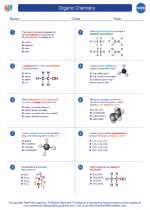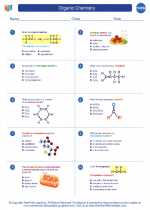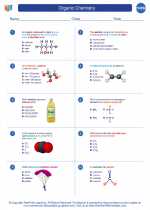Signal Transmission in Chemistry
Signal transmission in chemistry refers to the process by which chemical signals or messages are transmitted from one part of a system to another. This process is crucial for the functioning of biological systems and for the communication of information within and between cells. Understanding signal transmission is important in various fields including biochemistry, pharmacology, and medicine.
Types of Signal Transmission
There are several different modes of signal transmission in chemistry, including:
- Chemical Signals: Molecules such as hormones, neurotransmitters, and other signaling molecules can act as chemical signals, transmitting information through the body.
- Electrical Signals: In some cases, such as in nerve cells, electrical signals are used to transmit information within the body.
- Signal Transduction: This refers to the process by which a cell converts an extracellular signal into a specific cellular response.
Mechanisms of Signal Transmission
The transmission of chemical signals in the body can occur through various mechanisms, including:
- Receptor Binding: Many chemical signals work by binding to specific receptors on the surface of target cells, initiating a response within the cell.
- Second Messenger Systems: Some signaling molecules trigger the production of second messengers within cells, which then relay the signal to the cell's interior, eliciting a response.
- Ion Channels: In the case of electrical signaling, the opening and closing of ion channels in cell membranes play a crucial role in transmitting signals along nerve cells.
- Enzyme Cascades: Certain signaling pathways involve a series of enzymatic reactions, forming a cascade that amplifies and transmits the initial signal.
Importance of Signal Transmission
Signal transmission is vital for numerous physiological processes, including:
- Cell Communication: Cells use signaling to coordinate their activities, respond to changes in their environment, and communicate with one another.
- Regulation of Metabolism: Signaling pathways help regulate metabolic processes within the body, ensuring that cells respond appropriately to changing energy demands and nutrient availability.
- Development and Growth: Chemical signals play a critical role in processes such as embryonic development, tissue repair, and the regulation of growth and differentiation.
- Response to Stress and Injury: Signaling pathways are involved in the body's response to stress, injury, and potential threats, helping to initiate appropriate defensive or reparative responses.
Study Guide for Signal Transmission in Chemistry
When studying signal transmission in chemistry, consider focusing on the following key areas:
- Understanding the different types of chemical signals and their roles in the body.
- Exploring the mechanisms by which chemical signals are transmitted and received by target cells.
- Examining specific examples of signaling pathways and their physiological significance.
- Investigating the impact of signal transmission on cellular processes, such as gene expression, metabolism, and cell growth.
- Considering the relevance of signal transmission in the context of pharmacology and the development of therapeutic interventions.
By mastering these concepts, you can develop a comprehensive understanding of signal transmission in chemistry and its fundamental importance in biological systems.
[Signal Transmission] Related Worksheets and Study Guides:
.◂Chemistry Worksheets and Study Guides High School. Organic Chemistry

 Worksheet/Answer key
Worksheet/Answer key
 Worksheet/Answer key
Worksheet/Answer key
